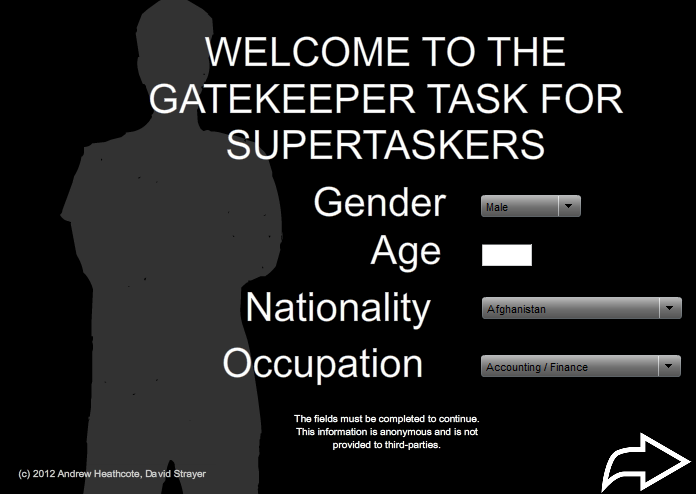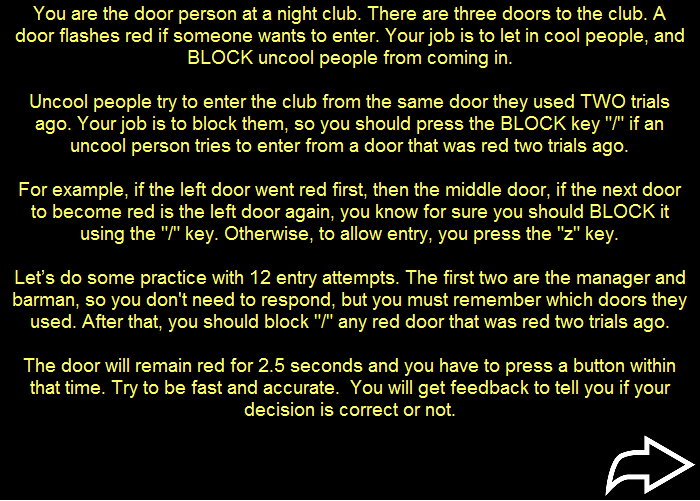So You Think You Can Multitask: Multitasker Test Reveals Whether You're In The Rare 2% Who Can Stay Focused

Many of us may pride ourselves in our ability to multitask as we effortlessly drive, talk on the phone, eat, and drink, all at once. The ability to juggle work has become a desirable skill in the workforce, especially living in a society that is connected 24/7, but it can cause even the best of multitaskers to feel burnt out, and most importantly, lose focus. David Strayer, a psychology professor at the University of Utah, along with a group of psychologists, created “GateKeeper Task for Supertaskers,” an online multitasker test, a “supertasker” challenge, which measures our ability to handle a series of tasks.

“Now that we have the Internet version, and everyone who wants to can sign up and test themselves, we can have thousands of people testing,” Strayer told the New Yorker. “It takes a lot of time to find them, but now we will finally have the numbers we need.” This Internet test for supertasking is based off a previous 2010 study by Strayer and Jason Watson, a cognitive neuroscientist. This test has you act as a bouncer in the club who is asked to let in cool people and keep out uncool ones. To make decisions, you have to rely on both visual and auditory cues, while simultaneously being able to manage opening doors as quickly as you can to keep the club exclusive.
Although it sounds simple and straight forward, the test is designed for research and is not intended to be quick and easy. There are 20 rounds after the trial, and each takes around 90 seconds, according to Business Insider, but you can step away from your computer between rounds.

Most of us will fail terribly at this test because only two percent of people have the actual ability to multitask effectively, all thanks to genetics. Strayer notes there is less activity in supertaskers' brains' frontal regions — the frontopolar prefrontal cortex, the dorsolateral prefrontal cortex, and the anterior cingulate cortex — that are involved in multitasking and executive control. In other words, the brains of the two percent are less active with additional tasks, which means they are functioning more effectively.

The rest of us 98 percent do not stand a chance in acquiring this highly useful skill. A 2009 study published in the journal PNAS found that heavy multitaskers — people who constantly engaged in multiple activities simultaneously — tend to fare worse compared to those who do light multitasking when it comes to executive control and effective task switching. In other words, multitasking a lot appeared to make them worse at it.
The truth is our brains are not built to juggle a series of tasks that require a lot of brainpower since our short-term memories can only store between five and nine things at once.
To take the GateKeeper Task For Supertaskers, click here.
Published by Medicaldaily.com



























